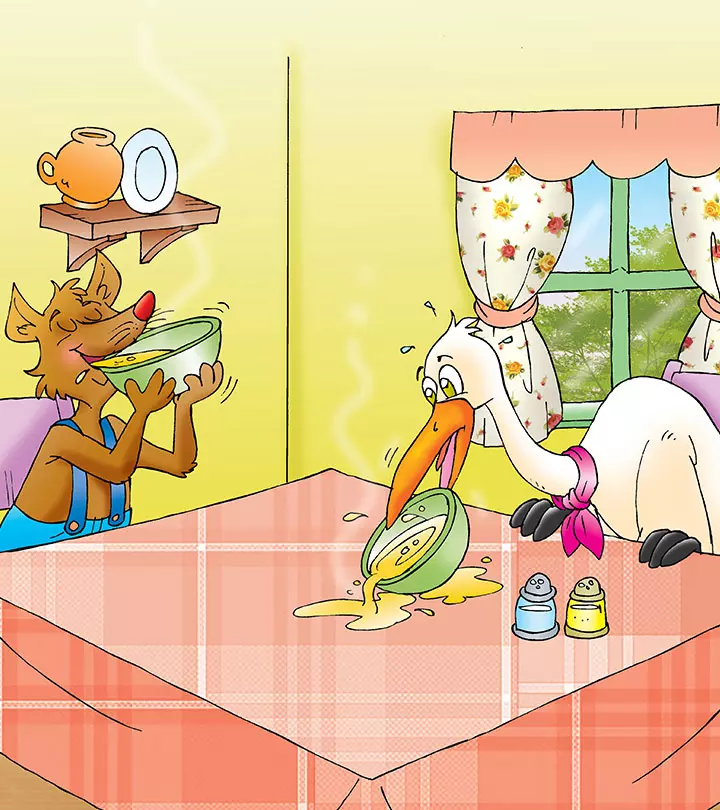

Image: Shutterstock
A newborn requires utmost care and attention. This may raise several concerns and queries for the new parents, such as how often to bathe a baby.
Bathing is an essential part of the baby’s daily routine. It is also enjoyable for the baby and offers an opportunity for the parents to bond with their newborns. But knowing how often you should bathe a newborn is important since the frequency is different from older babies.
In this post, you will learn about the time, frequency, and safety tips for bathing a newborn.
When To Give Your Newborn A Bath?
The World Health Organization recommends waiting 24 hours before giving the newborn their first bath. If you cannot delay bathing for 24 hours for some reason, wait at least six hours after the baby’s birth. The baby’s first bath should always be a sponge bath since the umbilical cord stump would still be intact. Give your baby haountil the dry stump falls, which takes about a week or two. You may then bathe your baby the conventional way in a bathtub.
It is essential to avoid bathing your newborn immediately after birth because bathing them too soon may lead to the following problems (1).
- Interferes with skin-to-skin care and breastfeeding: Giving your newborn a bath soon after birth may restrict their access to the mother. Early maternal bonding is vital for establishing skin-to-skin care and breastfeeding, vital for a baby’s healthy growth. Breastfeeding benefits are even helpful for the mother.
- Affects temperature and blood sugar: Newborns’ bodies need some time to adapt to the world outside the womb. Bathing a newborn soon after birth may make it difficult for the body to regulate temperature, increasing the risk of hypothermia (low body temperature). Hypothermia combined with the stress of having an early bath may even cause some babies to experience hypoglycemia (low blood sugar).
- Leads to dry skin: Your newborn’s skin is covered with a waxy substance called vernix caseosa, which protects the skin from germs and dryness. Bathing can wash away the vernix, making the baby’s skin prone to dryness and minor skin infections.
What Time Is Best For Bathing A Newborn?
Bathing at the end of the day around bedtime could be a soothing and relaxing experience for the newborn (2). You may make bathing a part of the baby’s bedtime routine. Bathe the baby at the same time each night so that they grow habituated to it.
Maintain a 20-30 minutes gap between the last feed and bathing. You may also feed the baby after the bath. However, avoid bathing the baby if they are fussy and hungry. Also, do not bathe the baby when they are tired and cranky since it may cause them to associate bath with negative feelings.
How Often Do You Bathe A Newborn?
Newborns need not bathe daily, and two to three baths a week are sufficient to keep them clean (3). Take the pediatrician’s opinion if you wish to bathe the newborn more than thrice a week. You may wash the baby’s face, hands, neck, and bottom every day with water or a sponge since these areas are most likely to become dirty easily.
When Can You Bathe Your Baby Every Day?
It is best to bathe the baby no more than three times a week for the first year (1). Bathing more than thrice a week may dry the baby’s skin and cause discomfort. Once your baby is older than 12 months, you may bathe them every day with water. Some newborns may enjoy bathing in a bathtub, making bathing an excellent time to bond with the little one. In such cases, you may consider bathing the baby more than three times after doctor consultation.
How To Bathe A Newborn?
You must give the baby a sponge bath with soapy water until the umbilical cord stump dries and falls. You may then bathe the baby the usual way using baby soap and water in a bathtub. Make sure you wash the baby’s hair and scalp. A good after-bath routine of moisturizing and diapering the baby is also vital. You may read all about bathing the baby and the steps to follow here.
How Long Can You Go Without Bathing A Newborn?
You may bathe the baby less than three times a week. Alternatively, you may give sponge baths even after their umbilical cord falls off and only bathe the baby in a bathtub when they are soiled and dirty. Parents may prefer to wash only the face, hands, neck, and bottom. This is known as topping and tailing (4). You can also pay attention to any folds in the skin that might accumulate moisture, sweat, and dirt. Ultimately, parents may choose a frequency of bathing the baby based on their choices and the pediatrician’s opinion.
Safety Tips For Bathing Your Newborn
Here are some safety tips to follow when bathing your newborn (5).
- Gather all the items you need for the baby’s bath and keep them within reach.
- Maintain a comfortable water temperature to prevent overheating or cooling. The water should be slightly over 100°F (37.7°C).
- Invest in a bath thermometer to check the water temperature accurately. If you do not have a thermometer, dip your elbow in the water. The water must feel warm and not hot or cold.
- Do not leave your baby unattended in the tub. Avoid paying heed to other distractions while bathing your baby.
- If you have forgotten something you need, ask someone for help or take your baby along if you have to get it yourself.
- Always have a firm hold on your newborn’s body, as applying soap on them can make them slippery.
- Use a towel to pat dry the baby immediately after the bath. Do not rub the skin since it may cause irritation.
If you are a new parent or a parent concerned for your newborn baby’s safety, the question of “how often should you bathe a newborn?” is not uncommon. If your baby is older than 24 hours, you can safely bathe them with a sponge not more than two to three times a week until their umbilical cord stump drops. Ensure to follow the necessary steps and precautions while maintaining your baby’s safety. However, if you wish to bathe them more frequently due to specific reasons, consult your child’s doctor for approval and appropriate suggestions.
Key Pointers
- The first bath is often given within six hours of birth.
- Delay in the first bath promotes skin-to-skin contact, keeps the blood sugar and body temperature regular, and avoids dry skin in babies.
- You may give the newborn two to three baths in a week, changing their clothes and diapers on time, and wiping them to help keep them clean.
References
1. Dipesh Navsaria, Bathing Your Baby; American Academy of Pediatrics
2. Bathing and Skin Care for the Newborn; Stanford’s Children Health
3. Washing your baby; Pregnancy, Birth, and Baby
4. Washing and bathing your baby; NHS
5. Bathing Your Baby; Nationwide Children’s Hospital
Community Experiences
Join the conversation and become a part of our nurturing community! Share your stories, experiences, and insights to connect with fellow parents.
Read full bio of Dr. Arlene Dijamco
Read full bio of Dr. Meenakshi Maruwada
















